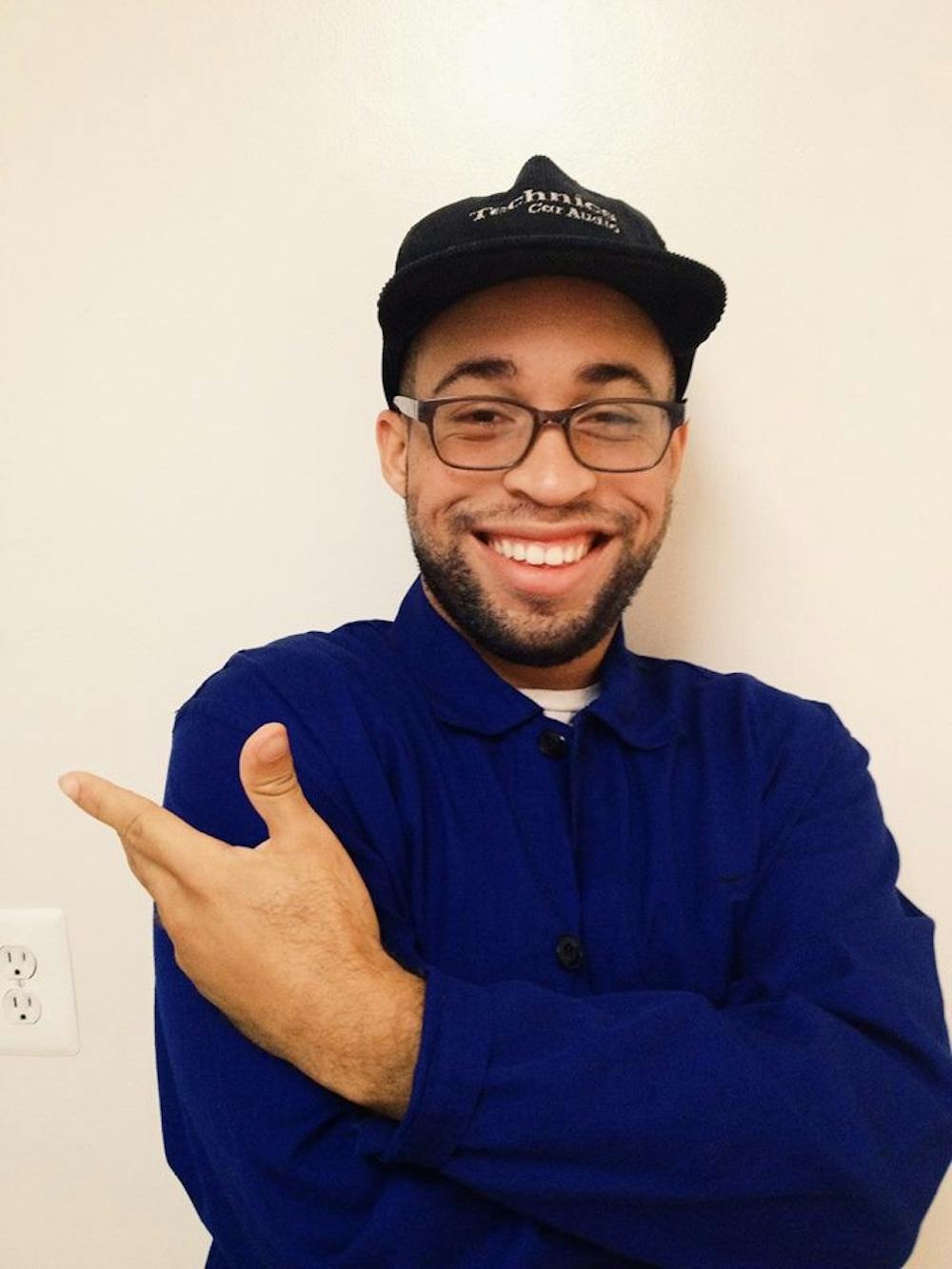It’s hardly been four months since graduation and AU alumnus Rafael Smith is still making (sound) waves at his alma mater. Channeling the whimsical music of De La Soul, his new single “Kerwin Money” dropped on SoundCloud Aug. 24 and has been played more than 900 times.
The track pokes fun at President Kerwin’s $1.3 million compensation, alludes to some shady funding projects and coins everyone’s new favorite hashtag — #Kerwinning. The Eagle sat down with Smith to discuss the inspiration behind his musical style and tongue-in-cheek lyrics.
The Eagle: How long have you been making music?
Rafael Smith: So, I started rapping and making beats in the seventh grade, so I was 12 years old at the time. I always liked rap music a lot, but I didn’t do it so much — I was known for knowing all the words to stuff that was on the radio. People would be like, “Say that song for us, you know all the words to it!” So I kinda got familiar with how to [rap] because I learned all these songs and started making my own lyrics. But it didn’t start in earnest until eighth grade.
E: So who were some of the people you were listening to in that time that have inspired you now?
RS: So the one piece of music that actually inspired me to make rap music was De La Soul’s album “3 Feet High and Rising.” I was mostly familiar with stuff that was coming out at the time that was on the radio, like Jay-Z or Snoop Dogg or Puff Daddy, and I liked those songs, but I couldn’t necessarily relate to them because I came from a middle-class background. I liked the songs and I liked the lyrics, but it wasn’t something I thought was authentic to emulate. And De La Soul’s record, it was a lot more whimsical, it was very goofy, and the way the instrumentals work, there’s a lot of very dense sampling, very eclectic sources, and that really resonated with
me. I was like, ‘Okay, this is a model for what I want.’
E: It’s a really caustic, sarcastic tone, and you talk a lot about living in Tenleytown and being an AU student. What was the inspiration for “Kerwin Money” specifically?
RS: It actually started out sounding a lot different. I was working on a beat and putting it together, and I didn’t know what lyric to put on top of it. And there was this phrase I used to joke with people, I was like ‘Oh, I’m getting that Kerwin money, getting all that money!’ It happened to go with the beat, like ‘Kerwin money, Kerwin money.’ But I decided that maybe that beat didn’t fit it too much, so I just scrapped it altogether. I took a loop from a song called “Looking for New Love” by Jody Watley — that’s what the main loop is in the song — and then I programmed the drums with it and put some other stuff in it. In the final mix that you hear online, you can’t really hear it too well, but there’s a loop from “I Shot the Sheriff” by Eric Clapton. But yeah, so I put all these different things together, and of course, the lyrics that people can sort of say,’Oh haha, that’s so funny.’
E: So you drop a lot of references about really shady funding in AU. How you heard about these stories?
RS: I guess just because some of the people I hung around with, just coming from [School of International Service] at one point, and some of the people that I know, they’re really into transparency and what’s the University doing with its money. So I would hear about the SIS Atrium and funding from the Prince of Bahrain, and the fact that Bahrain has concerns with his human rights record. This isn’t really specific to Kerwin, but the Bender Arena was at one time called the “Adnan Khashoggi Sports Center,” and Adnan Khashoggi, he’s a Saudi Arabian businessman who has some of his funds coming from arms deals. There was a controversy at the time when he donated to the school to build the center that you know, this guys has involvement in arms deals. But yeah, he was a donor to the school and that’s part of how Bender Arena was built.
E: So why did you want to include these references?
RS: Because they rhymed. A lot of the third verse was stuff that rhymed, and stuff that I thought people either didn’t know of, and if they heard it they’d find it really interesting or really funny.
RS: Going off that theme, there’s so much contrast between Kerwin’s wealth and the wealth of the University, and contrasting that with the students who are sharing room in apartments and the adjuncts struggling to get by — did you kind of want to start a conversation about class at AU with that song?
RS: I can’t really lie and say that I did. It was mostly because I thought it was a funny idea. How [Kerwin Money] is now, it says ‘He wants the money in hand by any means and methods.’ The original version of the song started with ‘I want the money in hand by any means and methods.’ It was a joke song, and just being like, what’s a good measure of having a lot of wealth? Well, Kerwin money, because he makes a lot of money every year.
So, it wasn’t any concerted effort to start the conversation about class or the fundings of the school; it was literally just a funny song. But I mean, if that’s something that happens as a result of people hearing the song, that’s good.
This interview has been edited for clarity and length.





